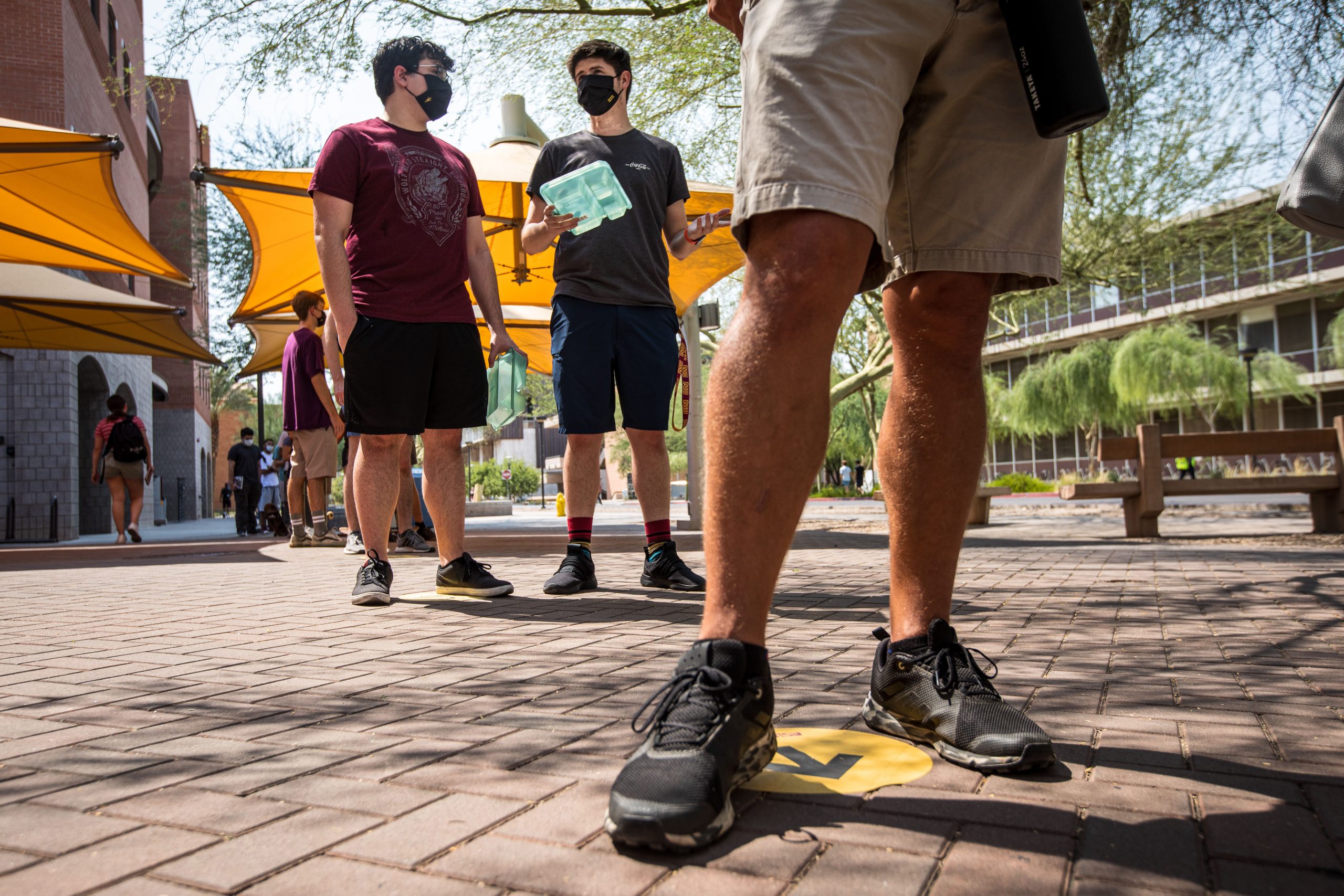As some universities continue to struggle with containing the outbreak of COVID-19 on campus, Arizona State University and the University of Arizona appear to have a successful way of preventing the spread.
According to the most recent update by ASU Health Services on Nov. 2, the university currently has a total of 107 known positive cases; 91 of those cases are students, which represents 0.12% of the entire student body, and the remaining 16 cases are attributed to employees, which is a total of 0.13% of them.
Upon further examination of the data, 86 of the 91 student cases are traced to students living off campus throughout Metro Phoenix while the remaining five positive students remain in isolation on the ASU Tempe campus. Currently, there are no cases on any of the other campuses throughout the university including ASU Downtown Phoenix, ASU West and ASU Polytechnic.
ASU tests anyone who is symptomatic, and the university has tests available free of charge for any student or employee who wants one. On Aug. 27, ASU launched required, random testing of students and employees which helps the university mitigate risk by generating a representative sample of its population to determine the current trends in regard to the virus.
Christian Sulit, a member of the universities COVID-19 Response Team, puts his own health and safety on the line multiple days a week in order to administer tests to students and employees.
“We are on the front line for the university’s COVID-19 prevention procedures which sounds like a daunting task, but the people that are managing it and setting the policies for safety are doing a really good job and everybody feels very comfortable,” Sulit said. “I never walk away from a shift feeling like I could be sick now or that I could have been exposed to the virus.”
Sulit says he actually really likes working as part of the response team because it’s important for ASU’s community and he is proud to be a part of something that helps keep people healthy. He is also very pleased with the university’s approach on containing the virus.
“With all the policies and all the testing sites and all the specific rules they had for move-in and access to buildings and classrooms, I think collectively, ASU has done a good job,” Sulit said. “I had low expectations coming into this year because we are such a large university, but the school has definitely exceeded my expectations, especially if we’re basing things off numbers.”
Sulit said the student body has been doing a commendable job in following the regulations set by the school and the Centers for Disease Control. To him the school almost feels like a “ghost town” compared to what it was like in past years because so many students are staying inside and social distancing.
Lily McGrath, a student at UA, said she feels like her school has been doing an excellent job in trying to keep everyone as safe as possible.
“I definitely feel safe on campus because the majority of students are following CDC protocols and wearing masks and I think my school is doing a good job regulating those protocols,” McGrath said.
According to the most recent updates from UA’s COVID-19 response data, published on Nov. 3, the school has tested a total of 8,192 people in the past 10 days, resulting in 70 positive tests, which represents 0.9% of the tested population; 67 of those positive tests were students and three of them were employees.
“When looking at my school’s numbers, it makes me feel very lucky that I go here because I know they are doing everything they possibly can to keep everyone safe,” McGrath said.




